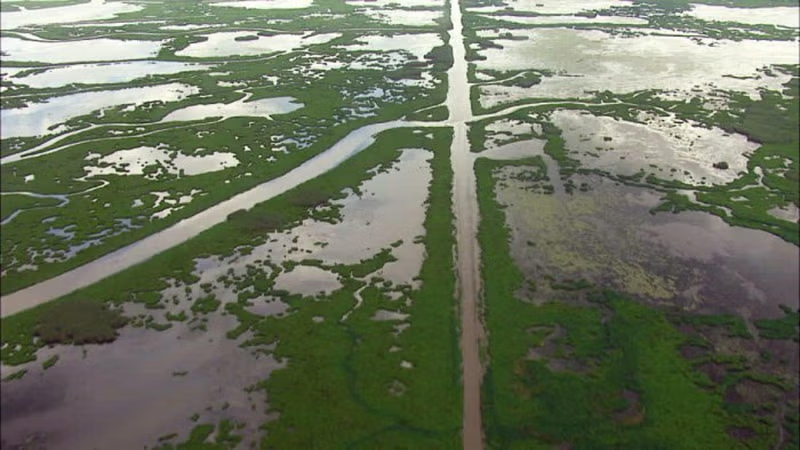Navi Mumbai’s Wetland Crisis Sparks Government Action
Navi Mumbai is poised for a significant environmental survey, with experts and local authorities teaming up to assess the biodiversity of the Kharghar Wetlands and Hills on February 1, 2025. The survey is set against the backdrop of World Wetlands Day, which falls on February 2, and this year’s theme, ‘Protecting Wetlands for Our Common Future,’ calls for urgent attention to wetlands’ role in maintaining ecological balance and safeguarding biodiversity.
The Kharghar Wetlands, a vital ecosystem in Navi Mumbai, face increasing threats despite their significance in supporting migratory birds, groundwater management, and flood mitigation. The biodiversity survey will likely offer insights into the region’s environmental health, focusing on its role in maintaining local biodiversity, supporting flora and fauna, and mitigating the effects of urbanisation. The wetland’s continued degradation could have far-reaching consequences for the surrounding ecosystem and local communities reliant on its resources. Amid growing environmental concerns, Maharashtra Chief Minister Devendra Fadnavis has intervened in the issue of the DPS Flamingo Lake’s destruction, directing the state environment department to initiate an investigation into the situation. The 30-acre wetland, which has seen significant ecological deterioration, has been under scrutiny by local environmentalists.
Fadnavis instructed both the City and Industrial Development Corporation (CIDCO) and the Navi Mumbai Municipal Corporation (NMMC) to submit a comprehensive report within 15 days. This comes after environmental activists raised alarms about the condition of the lake, particularly in relation to the Navi Mumbai International Airport (NMIA) project. CIDCO had initially pledged to uphold environmental commitments, including following recommendations by the Bombay Natural History Society (BNHS) to protect local biodiversity. However, concerns have arisen regarding the blocking of intertidal water flow to the DPS wetland, leading to stagnation and the drying up of critical habitat for flamingos.
Environmental advocates, including BN Kumar of the NatConnect Foundation, have been vocal in their criticism of the ongoing destruction, emphasising the importance of wetlands in supporting native and migratory birds, regulating groundwater, and acting as carbon sinks. Kumar noted that the stagnation in the DPS wetland, due to blocked water flows, is now rendering the habitat unsuitable for flamingos, which are integral to the area’s biodiversity.
Sandeep Sareen of the Navi Mumbai Environment Protection Society (NMEPS) reiterated the essential role of wetlands in mitigating urban flooding, supporting local fishing communities, and enhancing biodiversity. Both Sareen and Kumar have called for immediate corrective measures to prevent further degradation of the wetland and protect the fragile ecosystem from irreversible damage. As the investigation continues, all eyes will be on how the authorities address the pressing environmental concerns and whether timely action will be taken to preserve these crucial ecosystems for future generations.




